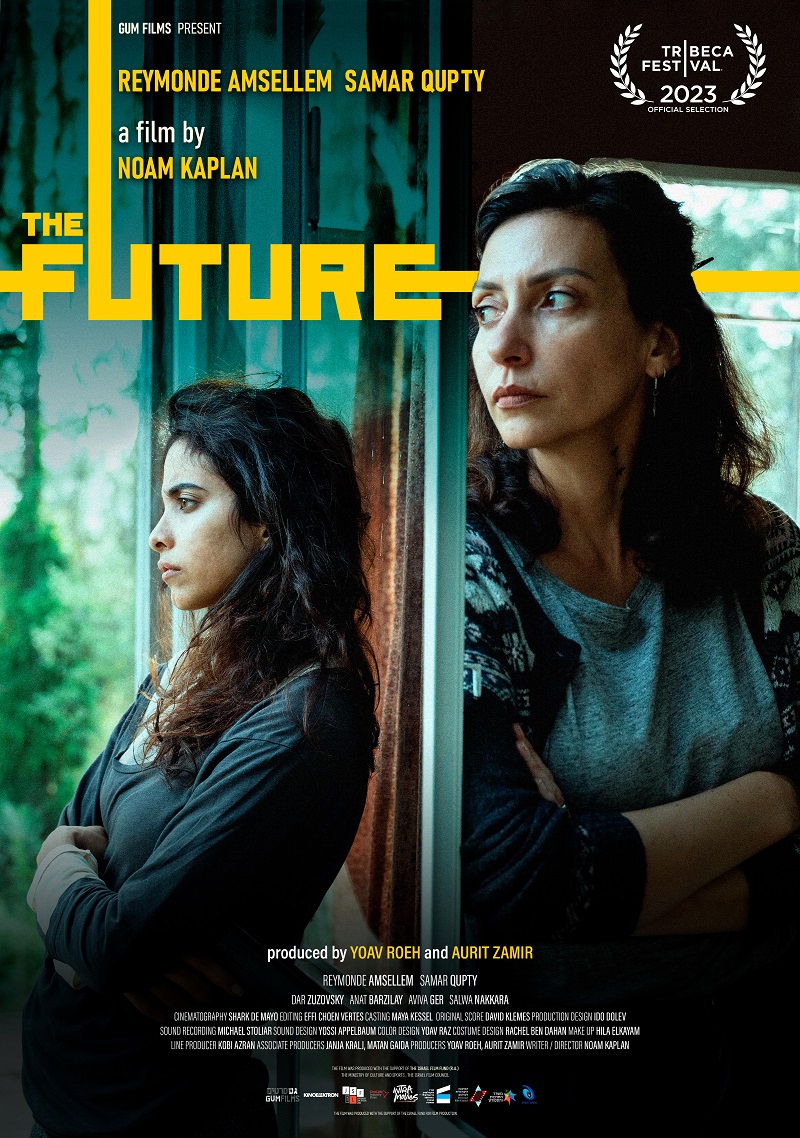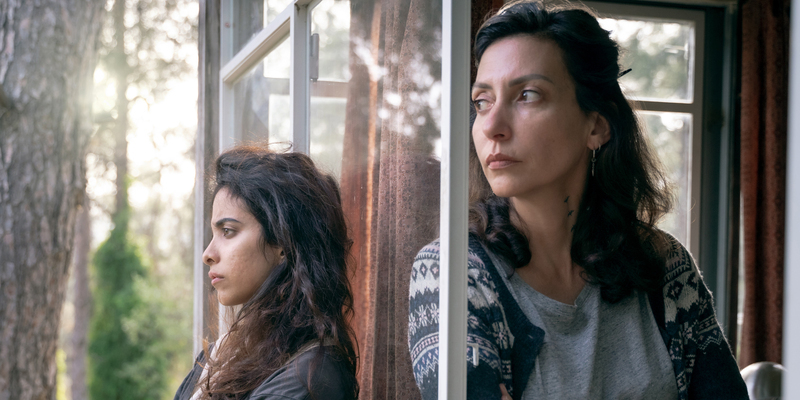
Review by
Benjamin Poole
Directed by: Noam Kaplan
Starring: Reymonde Amsellem, Samar Qupty, Dar Zuzovsky

The Future, Noam Kaplan's taut and deeply intelligent third feature, opens
in disorientating in media res. A single take of time-coded video footage
follows a striking young Palestinian woman, flanked by dour Mossad
members, as she walks the scene through a hotel conference room. With
practised Gen Z insouciance she answers questions and specifies detail
until the video's final moments wherein she calmly explains, with all the
nonchalant poise of the most cool and beautiful TikTokker ever, how she
shot the Minister for Space point blank in the head (the pulling of an
imaginary gun from her clutch bag is a lovely touch, as is the startled
look to camera from a cameo-ing Kaplan). The incongruity of Yaffa's (Samar Qupty) breezy confession is compounded in the next scene, where, via shots
framed within the lens of binoculars, we see a woman, Nurit (Reymond Amsalem), watching the town from her vantage point upon the hills. In a
split-second shock a house denotates below (the moment genuinely made me
jump!), and Nurit ruefully walks away: a job complete.

Within The Future's prelude, filtering Yaffa's admission through video and the bombing
from the distance of the hill, Kaplan establishes a motif of watching from
a remove. Following the more immediate energy of the opening, the film
continues this approach as it presents what is essentially a two-hander
between Yaffa and her older counterpoint Nurit, which we eavesdrop. A
scientist working on a software which scans phone calls and texts for
potential terrorist activity (it seems a bit like that Patriot Act
apologist surveillance stuff from the old Batman film), Nurit requests to
interview Yaffa, the one miscreant who managed to circumvent the
operation. Is Yaffa one step ahead of the omnipotent system, or is
something else afoot?

The film's title refers to both the ongoing conflicts and
The Future's narrative drive, the plot hinging not only on Nurit's science fiction
proposal (replete with intercut commercials for the intrusive software
which have the brisk satirical tinge of a Verhoeven skit) but with
Israel's space programme to launch the first woman on the moon, too. The
latter is a high-profile gesture of power and progress, hence the
Minister's assassination. Developing the film's female focussed themes,
Nurit is also courting a surrogate mother for a child of her own, while
Yaffa's only anxiety seems reserved for the whereabouts of her own mother:
it is clear that both women see the other as an unhealthy proxy for what
they are respectively missing. Throughout the film their conversations
range from the matter in hand, to the state of both nations, to,
ultimately, inevitably, more intimate concerns. The writing, direction and
performances are riveting, with Kaplan encouraging us to view the wider
implications of war through the microcosm of these two women.

Men within the action are glimpsed in the shadows, cut out by the frame.
The Future is a film predicated upon how women like Yaffa
and Nurit navigate the conflict, and its effect upon them. The absurdity
of the map and the territory is suggested by Nurit's pleasant chats with
her neighbour about his chickens - shot in a characteristic wide angle,
the remote farmland is demarcated by barbed wire and fences which
farcically contextualise the interaction. In their conversations, as in
the indifferent retelling of the murder in the opening, there is too a
composure between Nurit and Yaffa, as if death, destruction and violence
are the natural way of things. The Future is serenely
horrific in its presentation of accepted terror.

The Future played at the 2023
Tribeca Film Festival.

